 | |
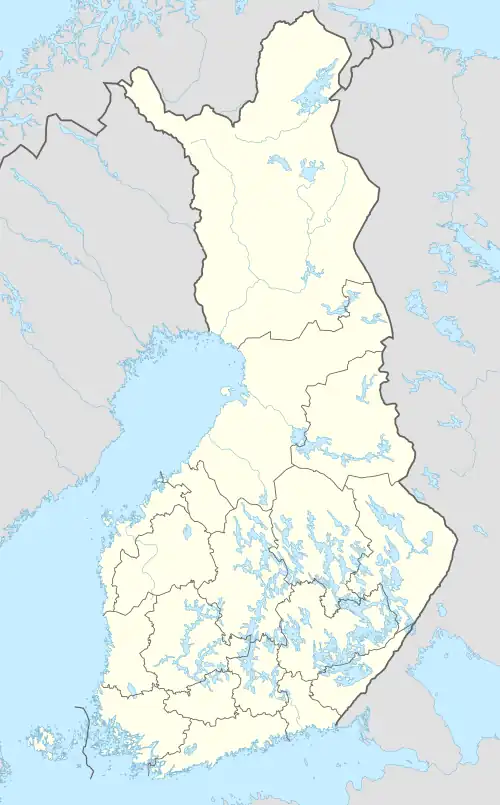 Inari Location in Finland | |
| Coordinates: 68°54′20″N 27°1′40″E / 68.90556°N 27.02778°E} | |
| Country | |
| Region | Lapland |
| Municipality | Inari |
| Population (2014) | |
| • Total | 581 |
| Time zone | UTC+2 (EET) |
Inari is a population centre in the municipality by the same name in Lapland, Finland. It is widely known as the capital of Finnish Sámi culture.[1][2][3]
History
The village grew up along in a spot where the fast-flowing Juutua River empties into Lake Inari. As the centuries went by, the village developed into a robust and active market and trade centre. When the municipality of Inari was founded in 1876, the village became its centre.
The people living in Inari then were not, however, the first people to live in the village, as people had been living on the shores of Lake Inari for thousands of years before that. Several stone-age dwellings have been found in Vuopaja, on the edge of town near Siida, the Sámi Museum.[4]
Gallery
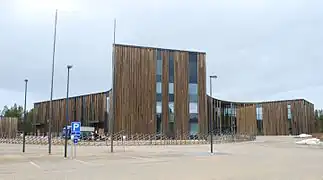 Sajos, the Sami Cultural Center in the Inari village
Sajos, the Sami Cultural Center in the Inari village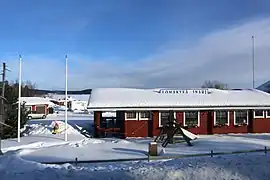 Snow in Inari
Snow in Inari Supermarket in Inari
Supermarket in Inari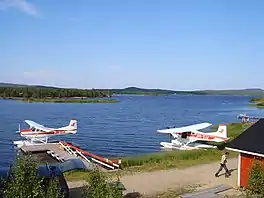
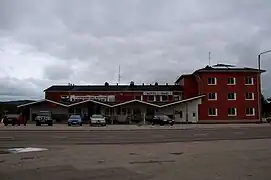 Hotel Inari
Hotel Inari
See also
References
- ↑ Tourism Inari – Saariselkä – Utsjoki – Ivalo - Discovering Finland
- ↑ HS: Inarin kirkonkylästä tullut saamelaisten pääkaupunki (in Finnish)
- ↑ Saamenmaasta, kulttuurista ja mytologiasta – Rantapallo (in Finnish)
- ↑ "History (of Inari)". Archived from the original on 2012-04-15. Retrieved 2007-05-09.
External links
![]() Media related to Inari (village) at Wikimedia Commons
Media related to Inari (village) at Wikimedia Commons